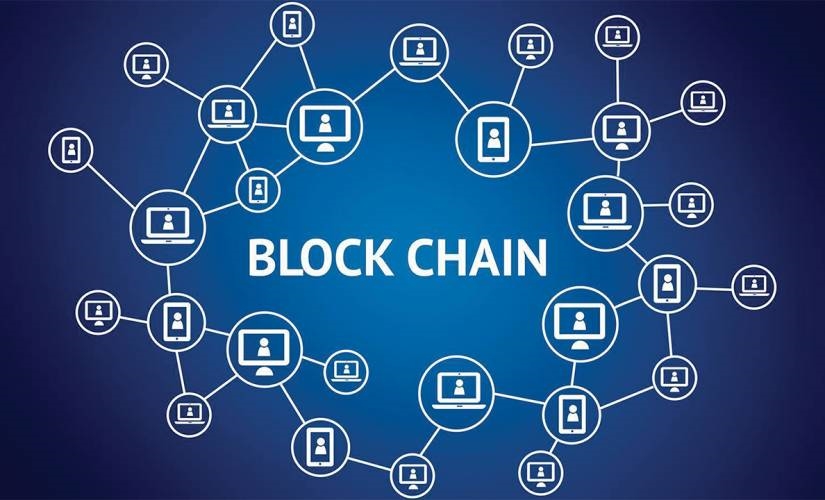Blockchain – A Technology Worth Keeping an Eye On!
Blockchain – A Technology Worth Keeping an Eye On!

Well, if you have stumbled across this blog post looking out for some valuable insights on Blockchain, you are in the right place!
“Blockchain,” Well, the term has created a buzz among tech geeks. Especially currencies like Bitcoin, which use the underlying technology of Blockchain, have kindled the curiosity bug among many tech enthusiasts.
So, What is Blockchain?
Why do we use the term decentralization so often?
What’s the use case?
How does it impact the financial sector?
Will blockchain technology sustain?
Well, I will answer all your questions today!

Let’s Revisit the Past!
Well, its inception dates back to the early 1990s!
As we were entering the internet age, data security became one of the most important problems that needed to be addressed. Unauthorized access, data alterations, and data theft made everyone question the reliability of data that people were sharing on the web.
Well, this is what made W. Scott Stornetta and Stuart Haber, a pair of physicist researchers, brainstorm on the technology that could keep the past data secured and resistant to tempering.
In the first research paper in 1991, they outlined the use of chains of blocks that were cryptographically secured and preserved the integrity of past information.
At that time, though, they were unaware that one could use this technology in creating new digital currencies and the vast blockchain ecosystem that we are witnessing today!
It wasn’t until 2008 that an anonymous person known as Satoshi Nakamoto made use of this technology and published a white paper titled “Bitcoin: Peer-to-Peer Electronic Cash Framework.” The most basic aspects of the most commonly used blockchain technology today, “Bitcoin,” were clarified in this paper.
Since then, we have witnessed the emergence of other blockchain technologies like Ethereum, which are not just a digital currency but can also be programmed to run computations.
In fact, in 2016, the financial industry embraced blockchain technology with open arms.
Exciting enough, right?
Well, it’s only the beginning!
Blockchain and the Concept of Decentralization
Well, the concept of decentralization emerged as the safest way to keep the data secured in Blockchain.
Before understanding decentralization, let’s try to understand centralization and its issues that ultimately led to a gradual shift towards decentralization.
Let’s take an example of a social media platform, say Facebook.
Now say you have just stepped into the world of social media and create an account on Facebook. While logging in, you will have to enter details like your name, date of birth, gender, interests, education qualification, and professional experience.
Once you have boarded this crazy world of social media, you will start uploading photos, share places you have been, the dish you had, people you met, and several other updates that you feel like sharing.
Now, while you might think of Facebook as a platform offering service and you as a customer, it’s not quite that way. The product here is you and the information that you are submitting.
Your data might get monetized and even used in a way that you might not even know about!
Now have you wondered where does all this data get stored?
Well, it’s on the central cloud server of Facebook!
This makes it much more vulnerable to attacks and data theft as there is a single repository of data!
It is, in fact, the biggest drawback of a centralized structure.
How Does Decentralization Solve this Issue?
The above drawback is what decentralization aims to address!
Decentralization can be understood as shifting the power and authority from a central authority and making it available to the member community.
A blockchain is a decentralized, shared ledger that permanently records and verifies transactions or operations between two participants. This is achieved by examining the cryptographic functions and timestamps. It helps you to check transactions through many machines, known as nodes.
This is what makes Blockchain decentralized and much more transparent. So, if there is a 100 node blockchain and ten nodes fail, the system will continue operating as there are 90 other active nodes.
BitTorrent is one peer-to-peer file sharing platform that does not rely on a central server. Bitcoin also works in a similar fashion as it does not require a central authority like a bank for two people to exchange values.
This is what makes Blockchain technology much more secure and resistant to attacks!
The Use Case
While people have used Bitcoin and Blockchain interchangeably, they are not so. Blockchain is much vast in its application. It can, in fact, be decoupled from the Bitcoin protocol and used for a number of other cryptocurrencies. Its use, however, is not restricted to digital currencies.
We can make use of blockchain technology in different industries and that too for a variety of use cases. Some examples are a record of ownership monitoring, triple-entry accounting and management, creative rights management, patient records, and so on.
How?
Well, let’s pick one of its many applications in triple entry accounting.
Even if you had no desire to pursue a Ph.D. in accounting, you would be aware that the world runs on double-entry accounting!
Say, if I had paid you 100$ , I will debit the amount in my books and credit in yours. However, if you need to verify these transactions, you will have to appoint an auditor and pay millions of dollars for the audit work.
Now in triple-entry accounting, by using blockchain technology, there will be a third ledger entry, a.k.a a notarized entry. It’s like an agreement showing a record that I indeed gave you 100$ . It simply removes the need for a central figure to verify these transactions.
This next-generation technology automates the process of auditing and can save you sums of money in the future.
Let me tell you; there are several other areas where blockchain technology can prove to be a game-changer!
How Can Blockchain Impact Businesses?
Well, the Blockchain can have a significant impact on transforming several business functions.
As you know, in the present times’ businesses heavily rely on large centralized databases to store and process vast amounts of data. Human resources, marketing, finance, distribution, operations, and other organizational functions can profit from the data.
Centralized databases, on the other hand, have a lot of issues because they’re frequently siloed, unreliable, and inconsistent. This makes it difficult to share accurate data both internally and externally. Centralized databases also slow down the transaction time and fail to provide a single verifiable source of truth on data for multiple parties to agree on. Moreover, they are not ever secure as there is a single point of failure. The recent hack of Yahoo is proof of that.
Businesses have realized that the centralized structure is certainly not the way forward. They are now examining blockchain technology to overcome challenges that they currently face with centralized databases.
Blockchain can definitely solve this problem because it uses distributed ledger technology. So, instead of storing data on a single database, one can store, replicate, and exchange it through a network of databases using Blockchain.
This network is transparent and verifiable, enabling users to see a single truth source for both current and historical data. It also increases transaction efficiency, precision, and speed while reducing conflicts and the need for intermediaries.
Several new use cases are also merging across many industries enabled by Blockchain,
Supply Chain Management
Asset history becomes verifiable, traceable, and auditable, ensuring accountability across the supply chain’s lifecycle.
Industry of Medicine
Patients can easily access their own medical records stored in the medical facility.
Music
Music ownership and distribution will benefit from blockchain technology since musicians will now be paid directly for their work. Hence, eliminating the involvement of middlemen.
Things-on-the-internet (IoT)
One can use Blockchain to connect and audit IoT machine-to-machine transactions.
As you have seen, the benefits of using blockchain technology are immense.
Blockchain, on the other hand, is not the solution to every business problem. To seriously consider Blockchain as a business application in the future, you must try to answer a few questions.
- Do different parties or organizations communicate with one another?
- Is there a requirement for central agents to serve as intermediaries in some areas of the business?
- Is there a confidence difference between a transaction and a business process?
- Are there any properties that need past data in order to be tracked?
- Are there any parts in your company that you can automate and convert into smart contracts?
Let’s take a look at payments in the financial services sector as an example. Let’s say you are swiping your credit card. Now, right from the moment, you swipe it, and until you complete your transaction, you’ll find that there is an involvement of several intermediaries and measures. All of these ultimately lead to high transaction costs, inefficiencies, and delay in processing time.
This is why a transaction will take three or more days to go from pending to completed. A financial services company can drastically reduce transaction times by using blockchain technology as payment rails because it eliminates many intermediaries. One can even minimize transaction costs and operating costs.
Blockchain and its Future
Well, Blockchain is here to stay!
And, I can tell you that it’s not just the financial services that will benefit from the technology. Companies in almost every sector will reap significantly from adopting Blockchain in their business functions.
How?
- It will assist in the betterment of data record-keeping on disconnected networks.
- Personal data and digital assets ownership,
- Real-time auditing of a system’s operations,
- Automation of a multi-step paper-based procedure,
- Tokenize assets for use on public blockchains,
- Integrations with other new technologies, such as artificial intelligence and the Internet of Things, are also available.
At this time, Blockchain is a technology with a remarkably wide range of possible applications. While Blockchain has contributed heavily to the burgeoning cryptocurrency community, it now has various other applications. Perhaps even more exciting is that new Blockchain applications are now emerging in short time intervals.
We can say that Blockchain is not just on a slow walk; it’s shattering all the barriers and making inroads to the future!
The post Blockchain – A Technology Worth Keeping an Eye On! appeared first on ReadWrite.
(12)


